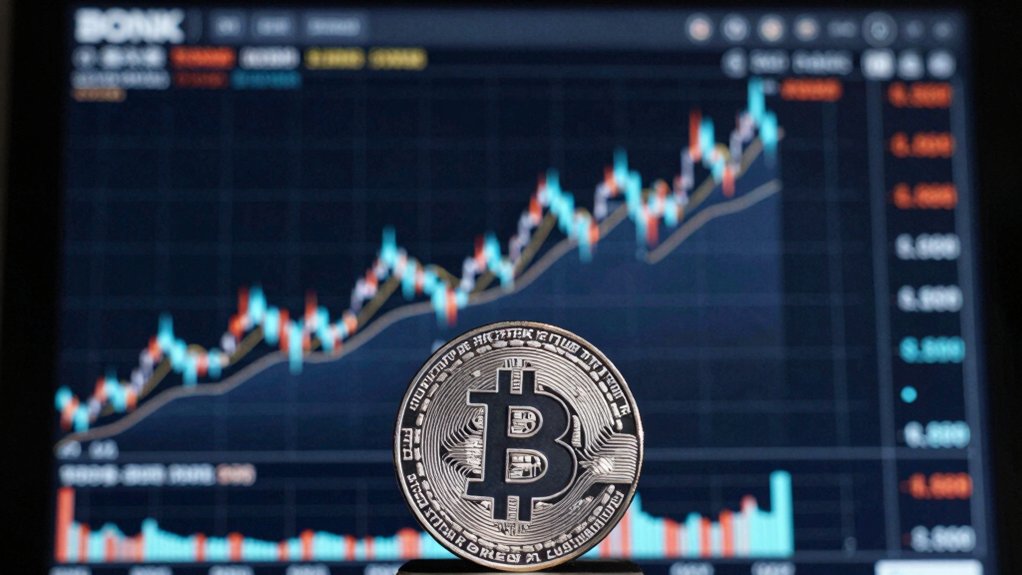Crypto airdrops are like digital treasure hunts where blockchain projects distribute free tokens to wallet holders. These tokens can range from worthless to highly valuable, as seen with Uniswap's legendary 2020 airdrop that created instant crypto-thousandaires. While some airdrops simply require a compatible wallet address, others demand social media engagement or specific portfolio holdings. Smart participants approach these opportunities cautiously, balancing potential rewards against security risks. The crypto airdrop landscape continues to evolve with sophisticated mechanisms that reward early adopters.

Fortune, they say, favors the bold – and in the cryptocurrency world, that fortune sometimes literally falls from the digital sky. Crypto airdrops, a phenomenon where new projects distribute free tokens to wallet addresses, have become the digital equivalent of finding money in your pocket.
Like seeds scattered in the wind, these tokens float through the cryptosphere, landing in the wallets of enthusiastic collectors and curious newcomers alike. The cryptocurrency landscape sparkles with different varieties of airdrops, each with its own flavor and requirements. Some merely ask for a wallet address, while others turn token-hunting into a digital treasure hunt, requiring users to complete tasks like sharing social media posts or joining community discussions. Users often need to set up compatible wallets like MetaMask or Trust Wallet to participate in these opportunities.
The most exclusive airdrops operate like VIP guest lists, targeting specific users based on their crypto portfolios or past interactions with blockchain platforms. Project teams must carefully verify participant eligibility before distributing any tokens. Behind the scenes, airdrops serve as powerful marketing tools, helping projects build buzz and cultivate devoted communities. Notable success stories, like Uniswap's 2020 airdrop that turned some lucky participants into instant crypto-thousandaires, have cemented airdrops' reputation as potential goldmines. The rise of DeFi integration with traditional financial institutions has made airdrops an increasingly important tool for attracting new users to cryptocurrency platforms.
Yet, like any gold rush, this one comes with its share of fool's gold and crafty prospectors. The crypto wilderness can be treacherous, filled with sophisticated scammers masquerading as legitimate projects. Smart participants approach airdrops like careful foragers, using separate wallets for collection and never sharing their private keys – the digital equivalent of giving away the keys to your house.
Tax authorities, too, have their eyes on these digital windfalls, considering them taxable income in many jurisdictions. Despite the risks, airdrops remain a fascinating experiment in digital economics and community building. They've evolved from simple marketing gimmicks into sophisticated tools for bootstrapping new blockchain ecosystems.
Whether distributing governance tokens or rewarding early adopters, airdrops represent a unique intersection of technology, economics, and human behavior. In this brave new world of digital assets, they serve as a reminder that sometimes the best things in life might actually be free – if you know where to look and how to stay safe while searching.
Frequently Asked Questions
Can Airdrops Be Taxable Events in Certain Jurisdictions?
Yes, airdrops can be taxable events in many jurisdictions. Countries like the United States treat them as ordinary income upon receipt, while others like Germany consider them tax-free. Tax treatment varies by jurisdiction.
How Can I Verify if a Crypto Airdrop Is Legitimate or a Scam?
Legitimate airdrops can be verified by checking official project websites, verifying team credentials, examining whitepaper documentation, and ensuring no private keys or payments are requested. Community feedback also indicates authenticity.
What Happens if I Miss the Claim Period for an Airdrop?
Missing an airdrop claim period typically results in forfeited tokens. Unclaimed assets usually return to the project treasury or get redistributed. Some projects offer grace periods, but most tokens are permanently lost after deadlines pass.
Do I Need to Hold Minimum Tokens to Qualify for Airdrops?
Most airdrops require minimum token holdings to qualify. Requirements vary by project, ranging from 0.01 to 1000+ tokens. Some airdrops focus on wallet activity or platform interaction instead of token quantities.
Are Hardware Wallets Better Than Software Wallets for Receiving Airdrops?
Software wallets are generally more practical for airdrops as they offer easier access and faster claim processes. Hardware wallets, while more secure, may require additional steps to interact with airdrop smart contracts.









